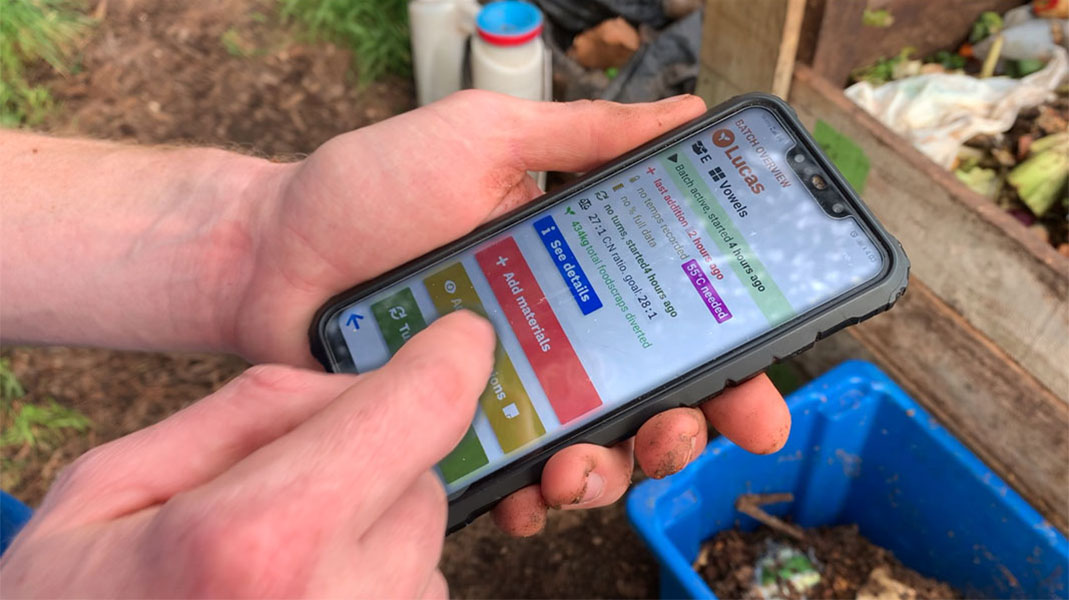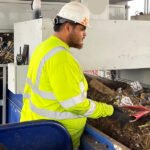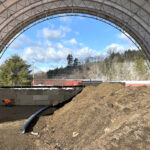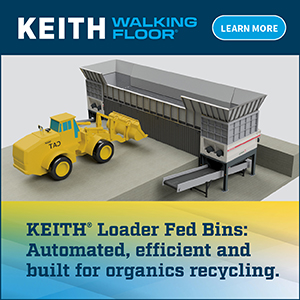Top: Recording composting pile data into the Living Compost Hubs app. Photo courtesy of Kaicycle.
A handful of passionate people came together in Wellington Aotearoa, New Zealand in 2015 around the vision of growing nutritious food in the heart of the city, composting local food scraps to feed the soil, and boosting the wellbeing of their community and ecosystem. The group started Kaicycle to carry out its vision, beginning with an urban farm that sold produce to cafes and restaurants, and donating up to 50% of its produce to communities in need. It composted food scraps and then expanded into an electric bike-powered food scrap collection service that has grown “slowly but surely” to serve 140 businesses and households. “Our composting operation at Kaicycle’s urban farm also grew, with a lot of learning along the way — handling plenty of smells, a couple of disgruntled neighbors, some memorable experimental piles, and a few million worms,” recalls Kate Walmsley, Kaicycle’s co-director and Compost Manager. “We process about 45 tons/year of food scraps using a hot composting method in boxes. We’re expanding to a new commercial site with a 100 tons/year HotRot in-vessel composting unit.”
Kaicycle outgrew its paper and spreadsheet based composting management systems, which were “dubiously effective,” she adds. “Sheldon Levet, our tech-whizz founder, decided to build an app from scratch to serve the composting and customer management needs of Kaicycle. We recently received funding from Wellington City Council to support the composting sector by opening the app to other organizations and further develop it. Pete Jacobson, a designer and developer, joined the team to build out the Living Compost Hubs App, which now exists to serve small- to medium-scale composting operations.”
Users have access to feedstock characteristics and can experiment with recipe development, aided by a built-in carbon-to-nitrogen calculator. The app also provides access to recipes shared by other organizations. The tool tracks temperature, percent of capacity available in the compost pile or bin, tons of food scraps captured and composted, and other management data needed to improve process efficiency, product quality and impact reporting. The app supports metric and imperial systems. A customer management tool is in the works for food scraps collection services. “We have been working with a number of composting enterprises in New Zealand over the last few months on user testing, and are now looking to launch internationally, including the U.S.,” says Walmsley. “Our goal is to make the app financially self-sustaining through subscription fees.”














